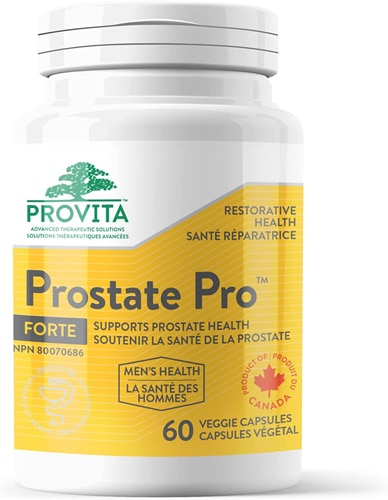[vc_row][vc_column][vc_column_text]Most men probably do not think much about the health of their
prostate – particularly if they are under age 50. But health conditions can affect the prostate, and some are serious and potentially life-threatening.
The prostate is a gland of the male reproductive system. It rests below the bladder and makes the fluid in semen.
Problems that affect the prostate often occur later in a man’s life, but these issues can strike at virtually any age. Fortunately, there are some things you can do to boost the odds of keeping your prostate healthy.

Health problems related to the prostate
The most serious illness of this gland is prostate cancer. Aside from skin cancer, prostate cancer is the most common form of cancer in men, according to the American Cancer Society. It is most likely to affect men who are age 50 or older.
Typically, prostate cancer grows slowly and does not cause serious health problems for men who have the disease. But in other situations, it can be deadly.
During 2024, it is estimated that more than 299,000 men will be
diagnosed with prostate cancer in the U.S. More than 35,000 men will die from the condition.
Other conditions also can impact the health of the prostate. They include:
- The inflammation of the prostate gland is the most common prostate issue in men under the age of 50. There are several different types of this condition, which is marked by swelling and pain.
- Benign prostatic hyperplasia (BPH). Also known as an enlarged prostate, this is a common condition in men who are 40 or older. It often causes issues with urination.
How to improve prostate health
There are several ways that you can boost prostate health. They include:
Eat healthful foods
One of the best ways to protect you prostate is to
eat a good diet.
“Following a primarily plant-based diet may help reduce the risk of many conditions, including prostate cancer,” says
Dr. Howard L. Adler, medical director of the prostate care program at Stony Brook Medicine in New York. “A
plant-based diet includes consuming fruits and vegetables, whole grains, beans, legumes and other plant protein sources.”
Also,
limit your intake of red meat and processed meats. Fish and poultry are better choices. You can also get protein from eggs and beans.
“Diets that are high in fiber, low in fat and limited in the amount of simple sugars are also helpful for overall health,” Adler says.
Exercise regularly
One study of more than 30,000 men found that those who
exercised regularly were less likely to experience symptoms related to BPH. Walking regularly and other low-intensity forms of exercise were good enough to provide benefits.
Get more sun exposure
Some research suggests that
men who get more exposure to the sun – and thus boost their intake of vitamin D – are less likely to develop prostate cancer. Of course, spending too much time in the sun can also increase your risk of skin cancer, so it is important to strike the right balance.
Maintain a healthy weight
Some research has found that obesity increases the danger of prostate disease.
Those who are obese may be at greater risk of being diagnosed with advanced prostate cancer, or prostate cancer that is more likely to end in the patient’s death, according to the American Cancer Society.
Low-level inflammation associated with obesity might damage DNA or boost production of hormones that either stimulate or inhibit cell growth.
“Drinking plenty of fluids and being physically active will help to maintain a healthy weight,” Adler says.
Avoid vitamin E supplements
Research has found a “statistically significant”
link between taking vitamin E supplements and an increased risk of prostate cancer, according to the National Cancer Institute. The risk of prostate cancer is 17% higher in men who take such supplements.
Possibly cut back on dairy intake
Some studies have found a link between an increased risk of prostate cancer and diets rich in dairy products and calcium. This would include drinking too much milk and eating too much cheese and yogurt. However, the increased risk is believed to be low, and consuming these foods can boost your health in other ways, such as by promoting strong bones.
Quit smoking or using other tobacco products
One study found that
smokers have a 42% higher risk of death from prostate cancer than nonsmokers. Other studies have found that use of the smokeless tobacco products – such as
powdered tobacco that is sold in teabags -- also increases the risk of dying from prostate cancer.
Getting screened for prostate cancer
Conditions that affect the prostate sometimes cause symptoms, including:
- A frequent need to urinate
- Feeling the need to urinate, but struggling to empty the bladder
- Leaking or dribbling urine
- A weak urine stream
However, the most serious prostate condition – prostate cancer – often does not display symptoms until the disease is advanced. For that reason, it is wise to screen for the disease as you grow older.
“The most important thing man can do for his prostate health is to have routine annual prostate evaluations with a prostate specific antigen blood test and a prostate examination by a trained physician,” Adler says.
The American Cancer Society recommends that men who reach age 50 and who are at average risk for prostate cancer should discuss with their doctor whether to be screened.
Men at higher risk should consider screening at age 45. This might include African-American men and men with a first-degree relative – a father or brother -- who were diagnosed with prostate cancer prior to age 65.
Those at even higher risk – which includes anyone with more than one first-degree relative who had prostate cancer prior to 65 -- should consider screening at 40.
After the initial exam, men who had a PSA of less than 2.5 ng/mL may only need to be retested every couple of years. A
PSA higher than that requires yearly screening.[/vc_column_text][/vc_column][/vc_row][vc_row][vc_column][vc_text_separator title="Featured Products" border_width="2"][vc_row_inner equal_height="yes" content_placement="middle" gap="35"][vc_column_inner width="1/3"][vc_single_image image="178081" img_size="full" alignment="center" onclick="custom_link" img_link_target="_blank" css=".vc_custom_1726695716211{padding-right: 7% !important;padding-left: 7% !important;}" link="https://www.vitacost.com/action-labs-saw-palmetto-for-men-positive-prostate"][/vc_column_inner][vc_column_inner width="1/3"][vc_single_image image="178079" img_size="full" alignment="center" onclick="custom_link" img_link_target="_blank" css=".vc_custom_1726695730751{padding-right: 7% !important;padding-left: 7% !important;}" link="https://www.vitacost.com/now-prostate-health-clinical-strength-90-softgels"][/vc_column_inner][vc_column_inner width="1/3"][vc_single_image image="178080" img_size="full" alignment="center" onclick="custom_link" img_link_target="_blank" css=".vc_custom_1726695745656{padding-right: 7% !important;padding-left: 7% !important;}" link="https://www.vitacost.com/provita-prostate-pro"][/vc_column_inner][/vc_row_inner][/vc_column][/vc_row]




